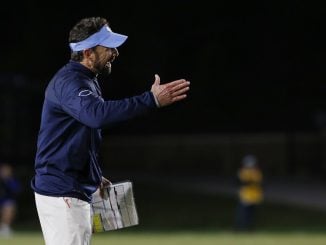
In many areas of the country, a small minority of troublemakers inevitably look to take advantage of natural disasters by helping themselves to the property of others. “Thinking about looting? Ask these guys how that turned out,” was a message published by the Miami Police Department on social media accompanied by blurred faces of 10 suspected looters sitting in jail. After Hurricane Harvey, Ft. Bend County Sherriff Troy Nehls message to looters went viral. In a media appearance, Nehls cautioned thieving opportunists to stay out “because you could leave this county in a [body] bag.” Harris County, which encompasses Houston, America’s fourth largest city, had over 40 arrests for looting in the wake of the historic flooding. Of course, Hurricanes Harvey, Irma, and Matthew pales in comparison to the lawless stories of rape, thievery, and mayhem that emerged after Hurricane Katrina (some of it proven later to be false).
While the media sometimes exaggerates instances of looting, they often play a role in apprehending the alleged criminals. A local Fort Lauderdale television station recorded a group of looters at a pawn shop and neighboring sneaker store that led to their arrests. Onlookers reportedly cheered. During Harvey, ABC News anchor Tom Illamas was roasted on social media for pointing out looters at a grocery store. Illamas was attacked by individuals that felt like the looters were only helping themselves to food and other necessities. Regardless, looting and chaos can teach us a lot about human behavior in the wake of a storm or other natural disasters.
Morality
One of the most important lessons that recent hurricanes are showing the country, despite deep political divisions, is the goodness and charitable nature of Americans. The contrast of those helping verse those taking advantage of people is enormous. Save Katrina in New Orleans, looting has been relatively obscure and a minor problem in the wake of most disasters. Americans continually step forward to help others during tragic times. For every depiction of a figure ransacking a giant flat screen amidst devastation, there are thousands of unsung heroes pouring their time and finances into the relief effort. One of the most indelible marks after Katrina was Christian relief agencies who had taken up residence in South Mississippi and Louisiana for years. Some, like Mennonites dedicating themselves to relief, resettled permanently to help others.
Racism
Twitter and much of social media is now a playground of petty ugliness, as any regular user can attest. One of the more unfortunate occurrences are individuals who seek to capitalize on the looting by making it solely about stoking racial divisions. One person asked on Twitter, “Why is it that all the looters are black?” Statements like that one are repeated ad nauseam. Yet, one of the first arrests for looting in St. Lucie County Florida was of a white guy. One the other side of absurdity, one author and journalist connected property rights to white supremacy. The good news is that while a select few try to capitalize on disasters to foment racial strife, the overwhelming majority are coming together. Disaster and tragedies break down traditional barriers, particularly as many citizens step up to become the best version of their self.
Property Rights
“I can’t think of anything more disgusting than to take advantage of people in a vulnerable situation.” Former Milwaukee County Sheriff David Clarke declared on Fox News. For many, it is one thing for an individual or family to have their homes and possessions survive only to come back to a looted home or business. Thankfully, the U.S. has strong system of property rights. Law enforcement, especially in regards to Harvey and Irma, deserve immense credit for pro-active responses to squelch looters. Overall, when the miniscule amount of looting is compared to the millions of Americans helping each other; it’s a reminder that optimism for this nation is embedded in the strength of its people and not the brokenness that surrounds us.



